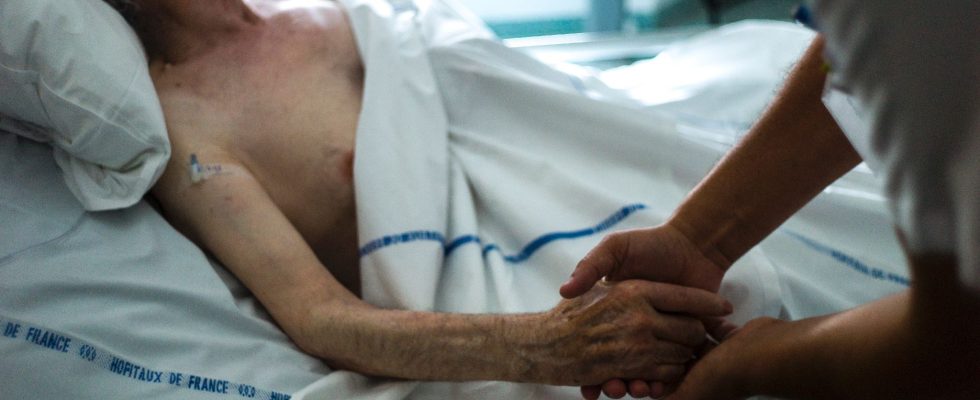It was a long-awaited opinion for the executive, in full preparation of its future bill on the end of life. The National Academy of Medicine has come out in favor of an “exceptional” right to assisted suicide, while clearly ruling out the use of euthanasia, in a report made public this Monday, July 17.
The difference between the two acts is not negligible, wishes to underline the learned society. In the context of euthanasia, it is a third party who administers a lethal product to a patient who requests it. On the contrary, concerning assisted suicide, it is the patient himself who self-administers this product. A very important difference for the medical profession: “Euthanasia, unlike assisted suicide, violates the Hippocratic Oath – “I will never cause death” – lent by any doctor”, recalls in particular the institution.
An act “under imperative conditions”
The National Academy of Medicine is thus taking a step forward for the first time in favor of assisted suicide. “It is inhuman, when the vital prognosis is engaged not in the short but in the medium term, not to respond to the despair of people who ask for the means to shorten the suffering they are undergoing because of a serious and incurable disease. “, explains the institution in its report.
An opinion that she still wants to be nuanced: this act must remain “exceptionally” and “under imperative conditions”. It insists in particular on the need for strict guarantees if assisted suicide were recognized by the legislator. She cites, for example, “a collegial assessment occurring upstream of any decision” or “an authorization and prescription without administration of the lethal product by doctors and caregivers, which leads to ultimate freedom of choice for the patient”. It also calls for “extreme vigilance” to “avoid any drift”, in particular concerning vulnerable people or people with impaired discernment.
Finally, the Academy of Medicine emphasizes “that recognition of assisted suicide makes it imperative to set up a palliative care offer throughout the territory corresponding to the needs and accompanied by the necessary means”.
An opinion welcomed by the government
On this very sensitive issue of the end of life, a citizens’ convention had been convened for nearly four months, from December 2022 to April 2023. 184 French citizens drawn by lot then submitted a report to Emmanuel Macron, speaking out in favor of the authorization of euthanasia and assisted suicide, subject to conditions. In the process, the President of the Republic had announced a bill “by the end of the summer”.
The Academy of Medicine, unsurprisingly, does not project itself that far. But this first step forward towards an evolution of the legislation had been congratulated by the Minister of Territorial Organization and Health Professions, also in charge of this bill, Agnès Firmin-Le Bodo. The latter had welcomed in advance on June 28 that “the reflection carried out by the National Academy of Medicine does not constitute in any way a renunciation, a rupture”, but indeed “a support path so that all vulnerabilities are precisely considered”.
The question of the end of life remains a source of great tension, particularly in the medical community. The prospect of a new law, seven years after the last Claeys-Leonetti legislation, crystallizes the opposition of caregivers, who insist that “death is not treatment.”
